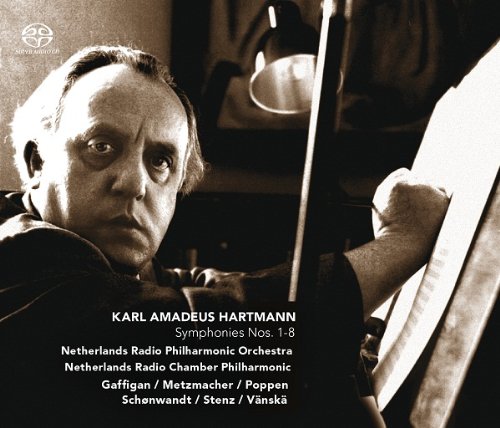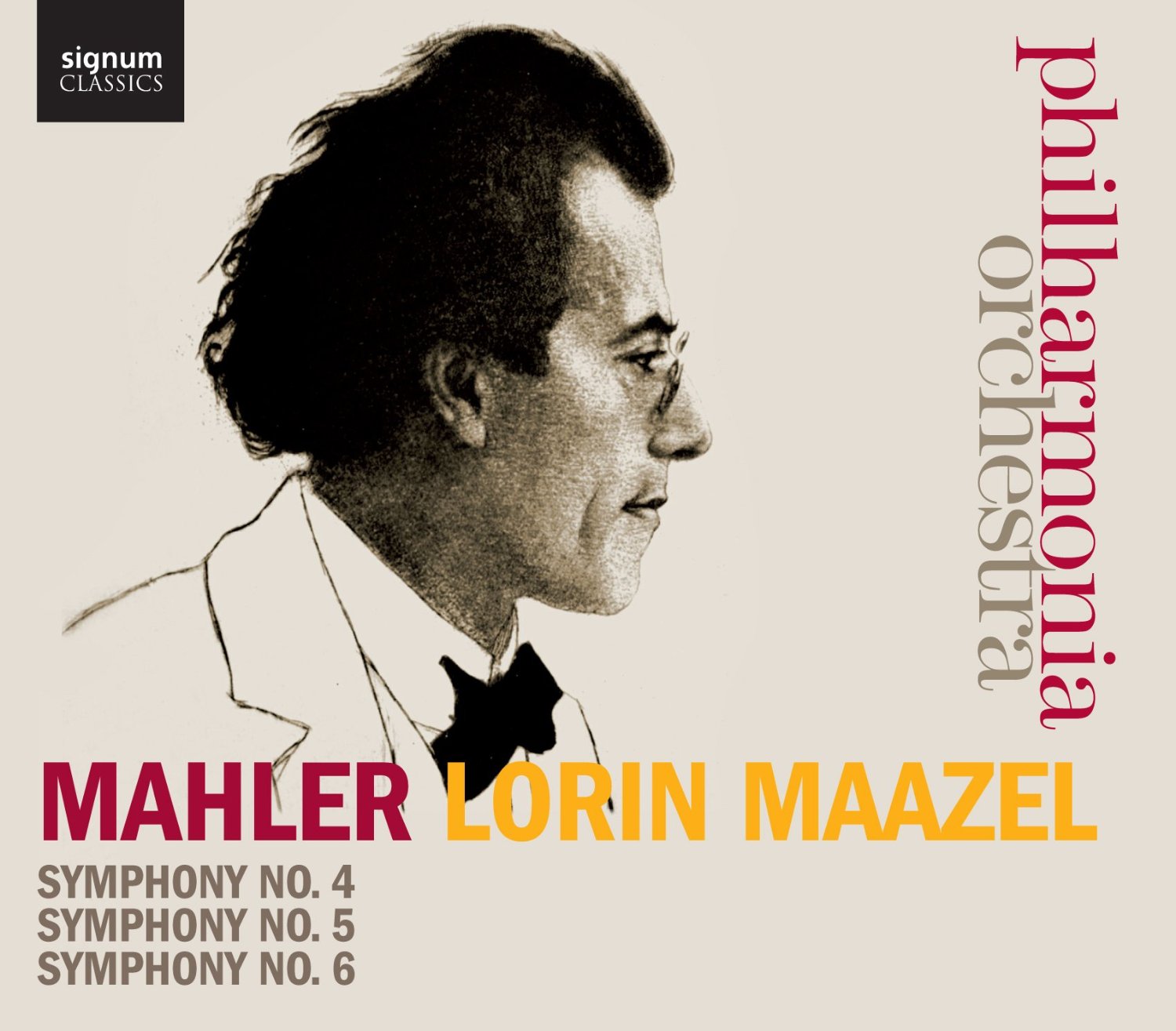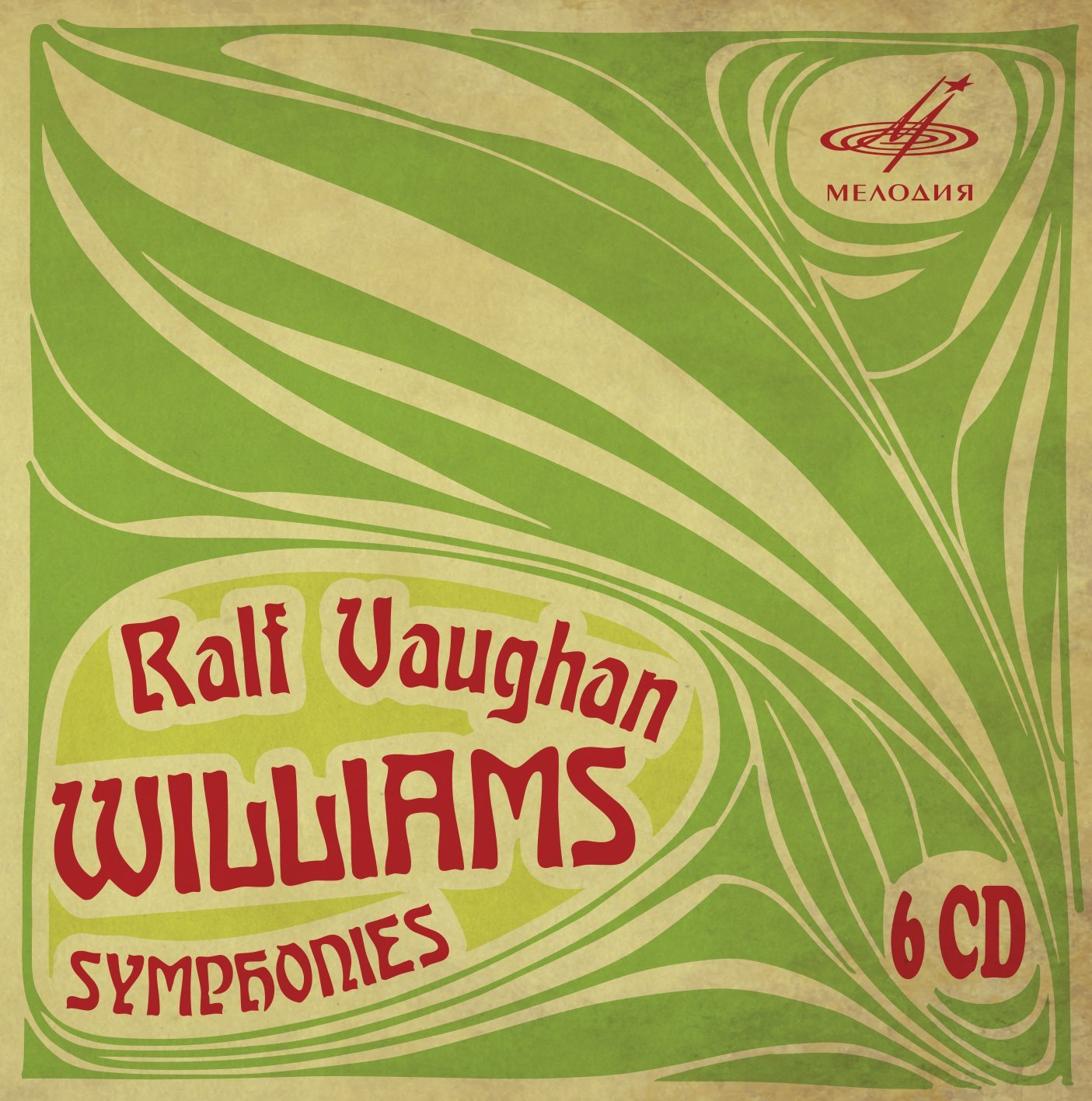
The symphonies of Karl Amadeus Hartmann rarely get a hearing in the UK. He's rated by some as the greatest German symphonist of the 20th century, a figure who Hans Werner Henze summarised as a composer for whom “symphonic architecture was essential... as a suitable medium for reflecting the world as he experienced and understood it – as an agonizingly dramatic battle, as contradiction and conflict.” The word architecture is the key – each one of these pieces is so carefully, skilfully wrought, every note in its rightful place. Hartmann's mature style was entirely coloured by external events – namely the rise to power of the Nazis. He chose to remain in Germany during the war years, retreating into what he called "inner emigration". Public performances of his work were an impossibility, and his musical language payed deliberate respect to composers whose music was banned by the regime. Berg, Mahler and Stravinsky are the most obvious influences – The Rite of Spring is quoted several times. These eight symphonies were completed between 1945 and 1962, though several reuse and revise material composed earlier. They're structurally distinctive, Hartmann repeatedly displaying a talent for composing angst-ridden, Brucknerian slow movements.
Newcomers are best off starting with the later symphonies, where the gloom is more effectively offset by positive energy. Hartmann's neo-classical motor rhythms chug along irresistibly in the 5th Symphony's Toccata, and the clarinet motif which opens the second movement Melodie could have the Stravinsky estate consulting its legal team. Michael Schønwandt's studio performance is fearlessly accurate and thoroughly likeable. Christoph Poppen makes No 6's Adagio sing, and Osmo Vänska successfully sustains the long second part of the 7th. Most of these performances were taped live in the Concertgebouw during 2012-13, which explains why six conductors share the credit. Markus Stenz's vigorous handling of the strings-only 4th Symphony is impressive, and he's excellent in the disquieting sequence of Walt Whitman settings which make up Symphony No 1. James Gaffigan makes a strong case for nos 2 and 3. He brings out the sensuality of the latter's second movement, and the close is sublime. A shame that the booklet essay doesn't contain more information about the individual symphonies, but I'm nitpicking - this set is a formidable achievement, superbly recorded. Play these discs at high volume when your neighbours are out.

The late Lorin Maazel's third Mahler cycle was recorded live in the Festival Hall in 2011, and is being released in instalments on the Philharmonia's own label. Maazel's reputation as a shallow timebeater isn't born out by what we hear in these three recordings. Mahler's music can fall apart if it's not kept under tight rein. Here, the control is fearsome, though Maazel's affection for the music does shine through. I'm thinking of the the gorgeous second subject in the first movement of Symphony No 4, tender yet soulful in this performance. The Poco Adagio is also impressive, the Philharmonia strings never sounding stretched. Soprano Sarah Fox's lightness is an asset in the finale.
Maazel's No 5 is weighty but brutally effective in the early stages. A slower speed for the funeral march's first trio stretches the Philharmonia brass to breaking point, but the gamble pays off. There's some lovely horn playing in the Scherzo, and a broad, well-sustained Adagietto doesn't outstay its welcome. And I've always preferred a more relaxed approach to the Rondo Finale; its good-natured geniality shines through in this performance. No 6's first movement is another success – particularly the cowbell interlude - though the live recording makes the orchestral sound too bass-light. The Finale is expansive, and Maazel the technician knows how to stop the music sprawling. These are consistently satisfying performances, handsomely played. Signum's perfunctory, clumsy packaging and dull artwork is a disappointment though – surely it would have made more sense to release the cycle complete in one slimline box?

You'd be forgiven for thinking that this is a spoof release... but no, this set of CDs really does exist. It's as if the Cold War never ended – murkily coloured, retro-style packaging, poorly-translated sleeve notes, and several places where the recording engineers aren't paying attention to the dynamics. Gennady Rozhdestvensky's tastes have always been broad. He conducted Elgar and Vaughan Williams while Chief Conductor of the BBC SO, and he recently gave a concert performance in Moscow of Britten's Death in Venice. This Vaughan Williams cycle comes from radio recordings of live performances given in Leningrad in 1988-89. One or two niggles apart, it's compelling listening. Rozhdestvensky's occasionally heavy speeds can be a stumbling block, but these performances mostly blaze with conviction. Everything's a little more extreme than we're used to – textures rawer, colours brighter, accents punchier. The Sea Symphony isn't the best place to start – the brass fanfare is pinched, and the choir's English diction is variable. The weight of tone is startling though – the Scherzo sounds in places as if we're listening to The Bells or Alexander Nevsky. Soloists Tatiana Smoliakova and Boris Vassilev are convincing. Rozhdestvensky's London Symphony is a charmer, full of picturesque detail and not shying away from the melancholy underbelly. The closing minutes of the epilogue are among the best you'll encounter. Symphony no 3 is equally distinctive – the slow movement's brass solos impeccably done, and a touching, otherworldly contribution from soprano Elena Dof-Donskaya.
Symphony No 4 is too broad and sprawls as a consequence – the finale's gallumphing rhythms sound a little ridiculous at such a slow tempo. No 5 has a radiance and sincerity that's highly affecting – the colour and security of Rozhdestvensky's strings in the final minutes is astonishing. The speeds in No 6 are weighty, but never undermine the savagery and nihilism. The first movement's big tune swells magnificently, the eerie coda appropriately bleak. The Sinfonia Antarctica's big moments are spectacular. Vaughan Williams' enigmatic final symphonies rarely receive their due. Here, the Eighth is a revelation, its colourful scoring glowing in Rozhdestvensky's hands. The Scherzo is delectable, and the percussion-heavy last movement is glorious. I still can't quite get my head round No 9, though its gruff otherworldliness is caught to perfection. The disquieting close, a garish major chord fading away as if it's been snuffed out, ends this set in some style. A fascinating, self-recommending release.














Add comment